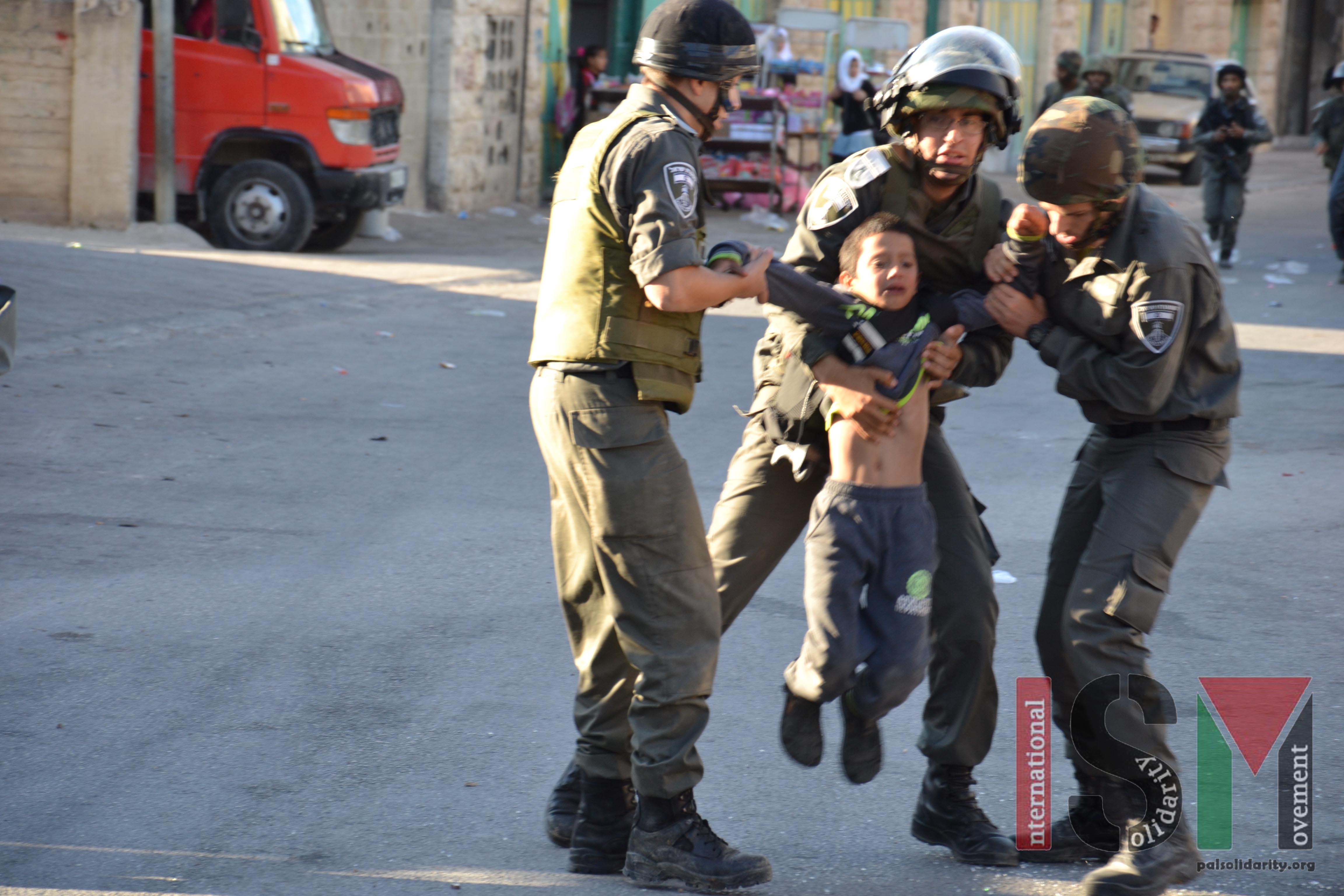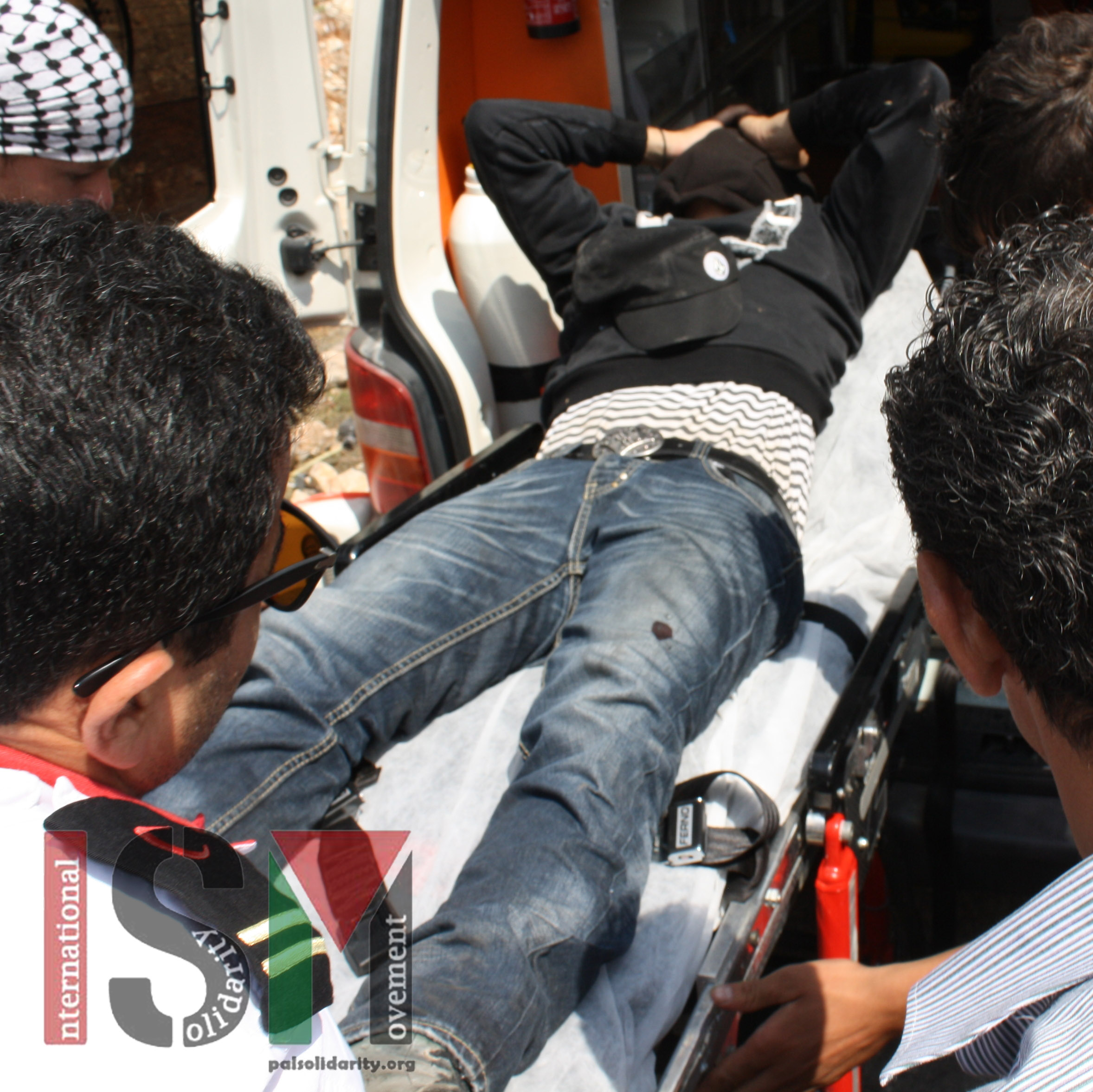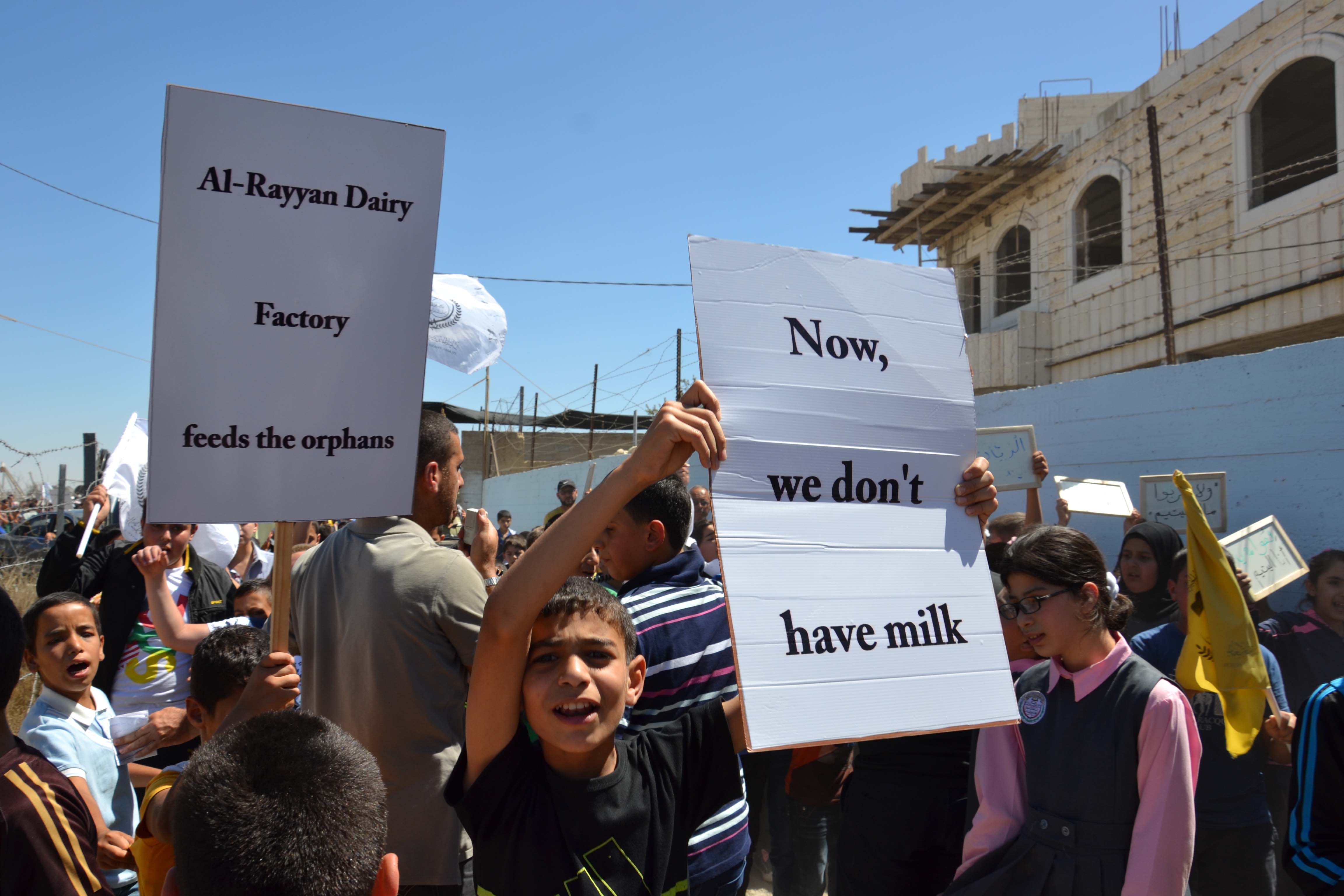Category: Reports
-
VIDEO: Seven-year-old violently detained, one child and two adults arrested
8th September 2014 | International Solidarity Movement, Khalil Team | Hebron, Occupied Palestine This morning in al-Khalil (Hebron), through the Salaymeh checkpoint, a seven-year-old was forcefully detained and three more were arrested, including another child. At 07:40, approximately six young children started throwing small stones towards the checkpoint. A few minutes later a group of Israeli border…
-
One injured in Kufr Qaddum protest
7th September 2014 | International Solidarity Movement, Nablus team | Kufr Qaddum, Occupied Palestine Since 2011, villagers from Kufr Qaddum demonstrate each Friday against the Israeli military. The village of Kufr Qaddum has had much land stolen by the nearby illegal settlement of Qedumim and in 2003 the main road connecting Kufr Qaddum to city of Nablus…
-
Orphans protest demolition of dairy factory
5th September 2014 | International Solidarity Movement, Khalil team | Hebron, Occupied Palestine Yesterday, 300 orphans staged a protest following the demolition of Al-Rayyan Dairy Factory, north of Hebron, which occurred in the early hours of 1st September 2014. The future of the children remains unclear as the two orphanages they live in, the Hebron Charity House…



